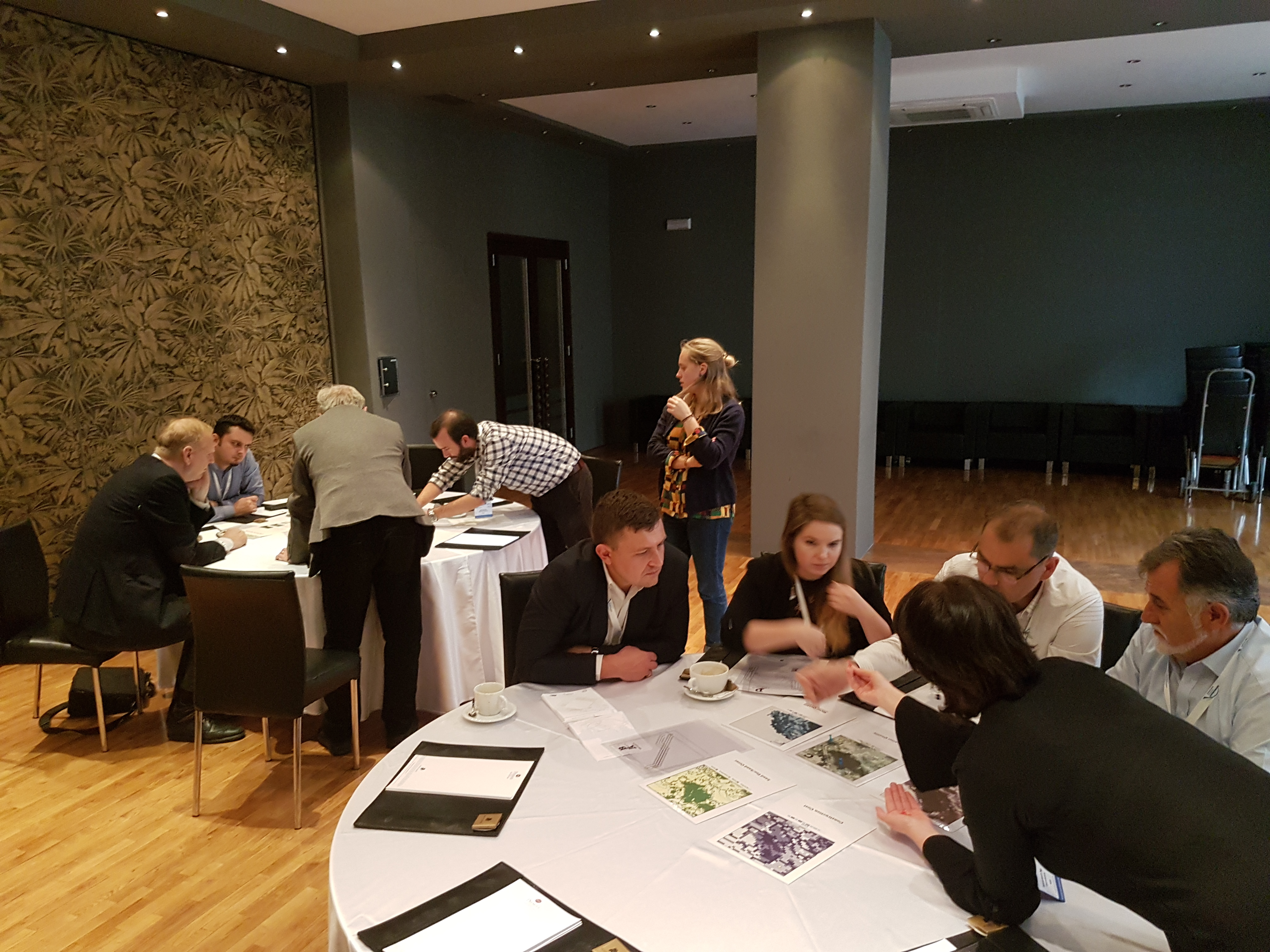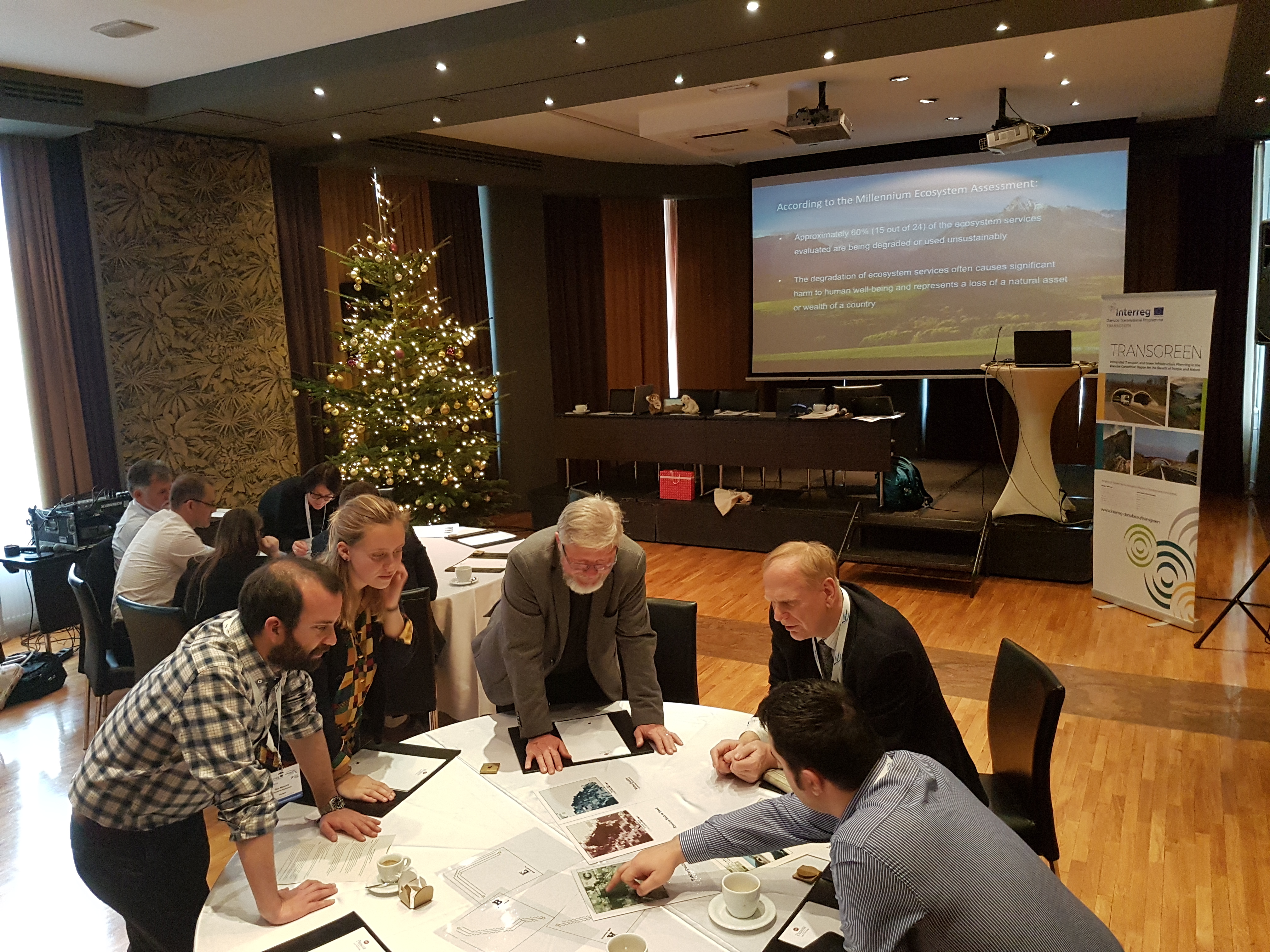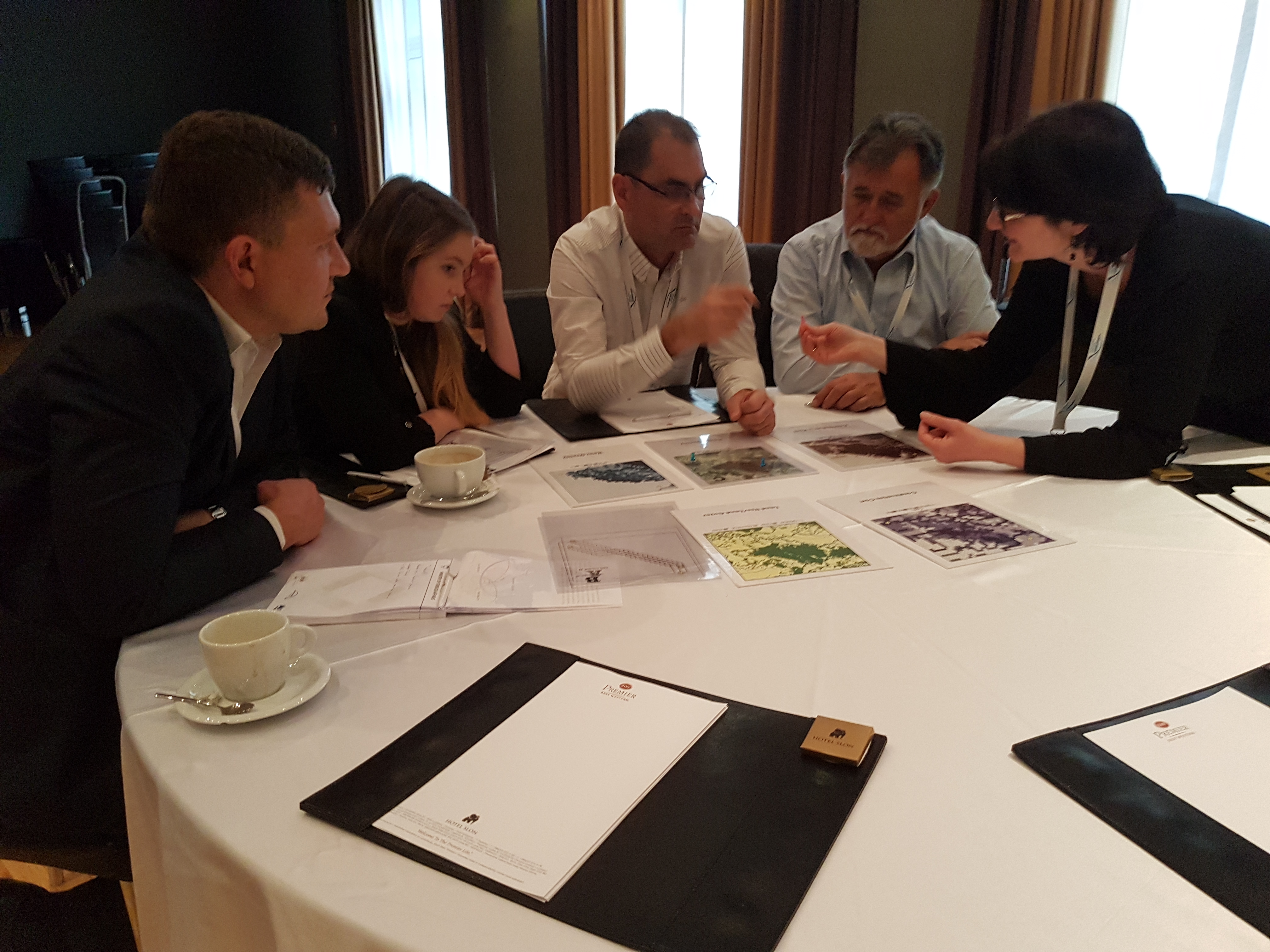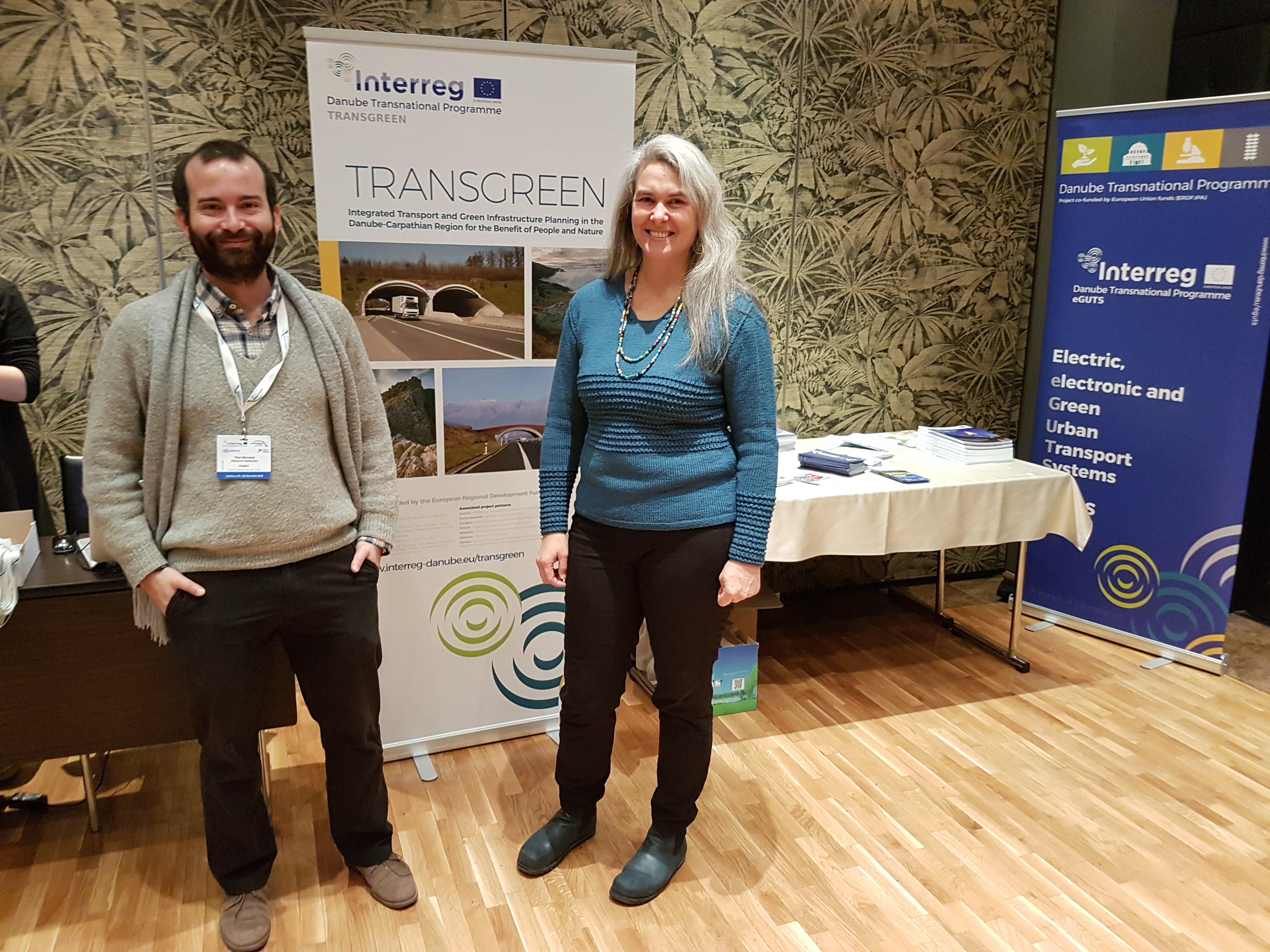TRANSGREEN - Playing a serious game @Danube Region Transport Days
17-12-2018
4-5 December 2018. Ljubljana, Slovenia. The 4th Annual Stakeholders Conference of Danube Region Transport Days brought together around 120 stakeholders from all over the Danube Region including the ministerial level, EU representatives and representatives from the project funding and road safety sectors. The two-day event represents a hot-spot for exchange and enhancing cooperation in the field of transport with focus on a connected Danube Region.
The first day had multiple topics in focus:
- financing mechanisms for transport projects
- ways to improve mobility and connectivity in the Danube region
- on-going projects and activities relevant to the Danube region. In this context, Mrs. Hildegard Meyer presented the preliminary results of TRANSGREEN and invited participants to join the project Final event in June.
- the future of rail passenger transport in the Danube region
- the Euro-Asian transport links and their importance for the Danube region
The second day dealt with road safety with a focus on infrastructure and challenges of air transport in the Danube region. On this day, TRANSGREEN partner organizations – WWF DCP and CEE web – offered invited conference guests to brainstorm on integrated transport planning, by using a less typical method: a board game, called “Trade off! Roads to resilient future” and developed by Stanford University, Stanford Woods, WWF, The Nature Conservancy and University of Minnesota.
The game is built around a case-study of a road planning situation, where the decisional processes are accelerated and the players can easily visualize the long-term impacts of their decisions. 10 very active players accepted the invitation and offered positive feedback at the end, due to the insights they had while playing and discussing with their co-players from different field of activity.
Game rules & description: “Trade off! Roads to resilient future” is a teaching game where teams compete to route a road connecting two towns in a landscape containing areas important for wildlife habitat and key ecosystem services (water purification, erosion control). Players need to evaluate tradeoffs and synergies amongst economic benefits of roads, wildlife conservation priorities, ecosystem service provisioning and construction costs in choosing among several alternative road routings. By addressing a range of sometimes conflicting values, the game can serve as a useful workshop activity in settings where stakeholders from diverse backgrounds and perspectives come together to discuss, plan or design sustainable infrastructure. The game was debuted at the WWF-Asian Development Bank Forum on Sustainable Development at Hanoi in May 2017, where it generated lively discussion among participants from a range of backgrounds (conservation organizations, development banks, insurance, finance, government) and set the stage for two days of productive discussions. Conclusion drawn up after the workshop was that planning in maintenance of biodiversity and key ecosystem services in an early stage is quite demanding, but in the longer-term rewarding for nature and people.




